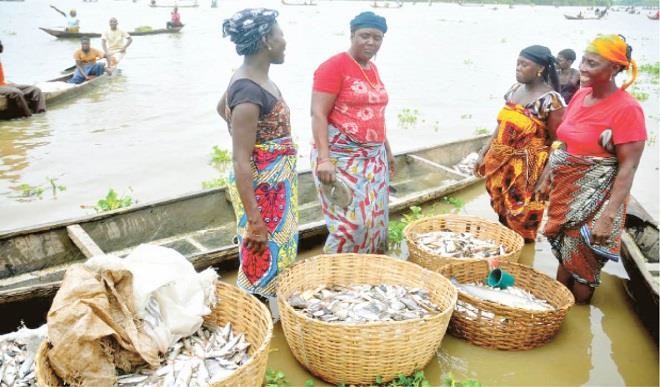Low patronage forced Jigawa women out of fish farming business
Women in Jigawa State are finding it difficult to go into fish farming business because of difficulty in raising capital, unavailability of fish feed and the market for the commodity. The few individuals or cooperative groups that gave it a shot after raising some capital, have been forced out of the business owing to low […]


Women in Jigawa State are finding it difficult to go into fish farming business because of difficulty in raising capital, unavailability of fish feed and the market for the commodity.
The few individuals or cooperative groups that gave it a shot after raising some capital, have been forced out of the business owing to low patronage, it has been gathered.
Speaking to Daily Trust, a woman fish farmer who was forced to close shop owing to poor patronage, Hajiya Khadija Suleiman from GidaDubu quarters in Dutse metropolis said, she was introduced to the business by a corps member who stayed with her during her national youth service.
Hajiya Khadija, who has been into fish production business for about five years said, in less than three months she was put through the rudiments of fish farming.
On requirements for starting fish farming, she said one needed to have enough capital because a pond and borehole must be provided for constant supply of water.
Hajiya Khadija, who started the business in her house where she dug a meter-deep by two meters’ wide pond for her 150 fingerlings as a beginner, said she was fortunate to lose only six close to the time of their maturity.
According to her, but for the problem of rising capital as a beginner, fish farming has less risk compared to poultry farming where incidences of death is high.
In fish farming, aside regular feeding, another requirement is that after every three days the pond will have be drained and refilled.
She said, exactly six months after, she harvested all 144 out of the 150 fingerlings earlier introduced in the pond, adding that all were weighing between two to one and half kilogrammes.
Hajiya Khadija said at the end of the harvest, which coincided with the Ramadan (Fasting period), she harvested and sold the fish with a reasonable turnover and that it encouraged her to introduce another 500 fingerlings to her 1000 water litres capacity fish pond.
Unknown to her, the high patronage she enjoyed in her last harvest was because of the Ramadan period therefore, her next harvest suffered from poor patronage but despite that she persisted.
She noted that despite her perseverance to sustain the business, poor patronage and high cost of feeds, which was not even available in the state, forced her to close shop for about two years now saying, she did not know of any woman that was still into fish production in the metropolis at present.
“I benefited from fish production business but poor patronage and lack of feed selling outlets which caused high price in the state made me to stop fish farming business.
Also, the chairperson of a women co-operative group, Bamaina Nomadic Women Cooperative in Birnin Kudu Local Government Area that engaged in fish farming, Malama Fatima Baba, said they were first introduced to the fish production business by one Malama Laure.
“At the beginning, we bought 400 fingerlings but shortly after we were faced with challenges in water supply. After every three days we had to buy from water vendors and as a result many of the fingerlings became infected with some diseases and later died.
But about 300 matured for harvest and all were bought as a result of the patronage enjoyed from the officials of the LGA. That encouraged them to introduce another set of 200 pieces of fingerlings.
“Lack of patronage, poor skill for management and lack of feed supply outlets made the entire business less attractive and that made all members to be discouraged. The business has been abandoned now for the past two years.
“As chairperson, I am appealing to the authorities concerned to come to our aid by creating market and outlets for selling feeds to enable women in purdah fight poverty,” Malama Fatima urged.
When contacted, the Special Assistant to Governor MohammaduBadaruAbubakar on Empowerment, Mohammed Sheik Mujaddadi, said the present administration has started a pilot scheme on training women in fish production, adding that 30 women from across the state’s constituencies were selected for the project.
According to him, as the project was at its infant stage they were yet to come across problems such as enumerated but called on the affected individuals and women cooperatives to come to his office with their complaints.
“Please inform these women to come to us so that we can discuss in order to be able to proffer solution to their problem,” Mujaddadi said.
